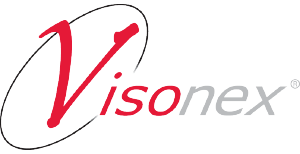Can Self-Dialysis help solve staffing issues?
The Medicare Benefit Policy Manual for ESRD, Chapter 11, defines Self-Dialysis in section 10 as:
“Dialysis performed by an ESRD patient in-facility with the expectation that the patient performs their dialysis treatment with little or no professional assistance.”
In-center self-care dialysis provides many of the advantages of home-based dialysis while eliminating some of the barriers to home dialysis. Evidence exists demonstrating patients are more capable of performing self-dialysis than one may think. A survey of 250 patients on dialysis and 51 board certified nephrologist demonstrated 69% of patients reported they are very likely or likely to consider a self-care modality with proper training on a system designed for this purpose¹. Although there is comprehensive training required initially, the machines used for self-care could be less complex as the in-center machines, thus requiring much less subsequent oversight and staff time. Nephrologists agreed, and feel patients have the capability to perform tasks such as weighing themselves, clearing alarms, taking vital signs and access cannulation. For patients, being in control of their own care, having flexibility for their time, the impact on their health (including depression), and not having to wait to start or come off from dialysis very appealing², ¹.
For the facility, patients on self-care allows reduction in the number of on-site staff, which can help alleviate staffing challenges. Self-dialysis also qualifies as a modality to assist with the current ETC payment model requirements. Patients performing self-care HD are immediately entitled to their Medicare benefit on day one of dialysis. Training fees are also provided for self-care (just as for patients receiving home dialysis).
The healthcare system also benefits from the reduced cost of hospitalizations. Self-dialysis can functions as a potential transition to home- hemodialysis, as the patient becomes more comfortable and confident in their administration of dialysis.
- Yau M. Carver M, Alvarez L, Block GA, Chertow GM. Understanding barriers to home-based self-care in-center hemodialysis. Hemodial Int 2016:20:235-41
- Young BA, Chan CT, Blagg C, Lockridge R, Golper T, Finkelstein FO, Schaffer R, Mehrotra R. ASN Dialysis Advisory Group. How to overcome barriers and establish a successful home HD program. Clin J Am Soc Nephrol 2012; 7:2023-32
Visonex LLC provides affordable, a la carte or comprehensive management services to assist clients with their operational and service line expansion needs, such as home hemodialysis or self-care hemodialysis. For more information, please visit our website: www.visonex.com, email us at: [email protected] or call us at 1-877-285-7944.
